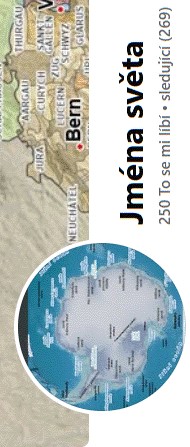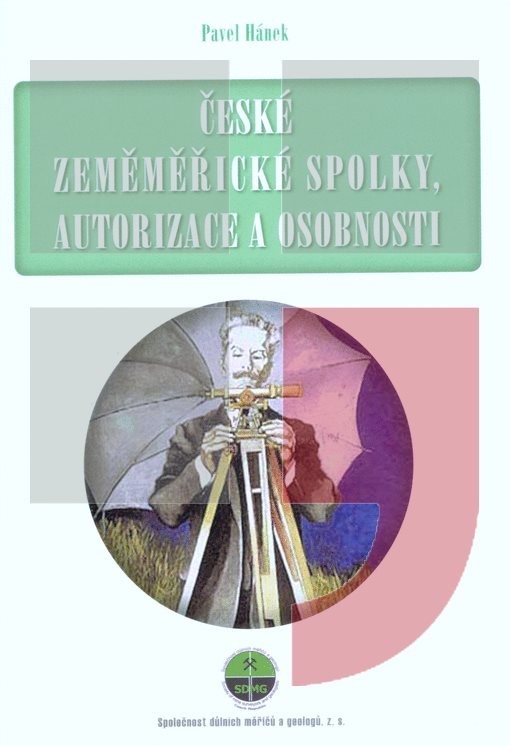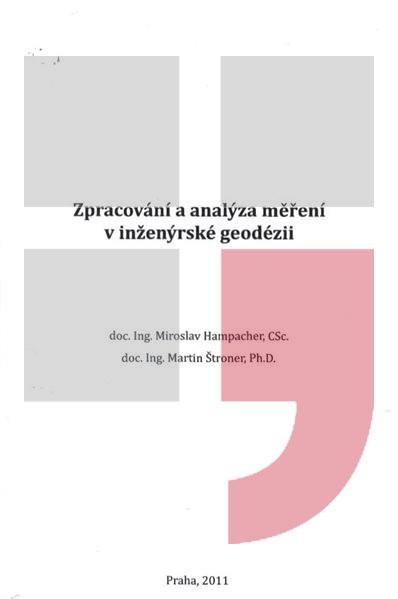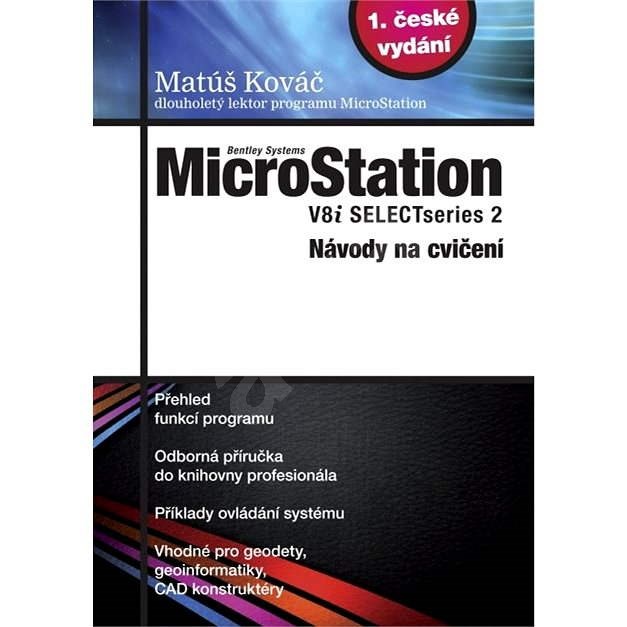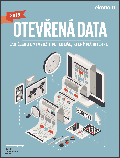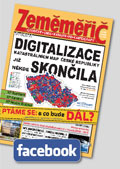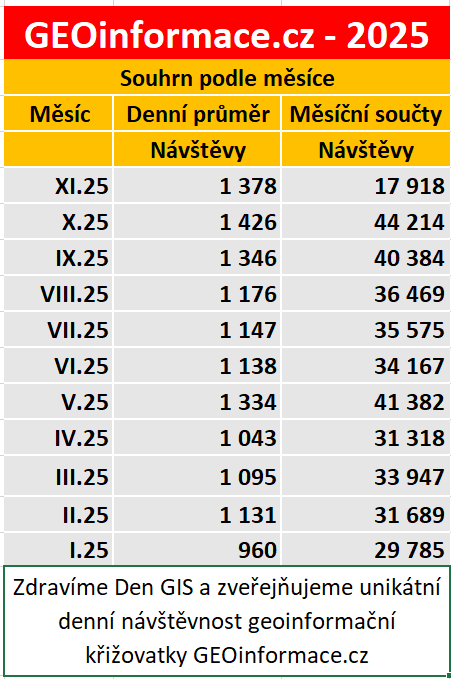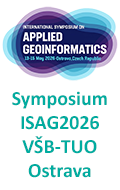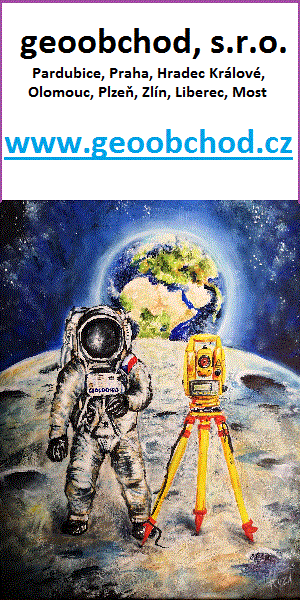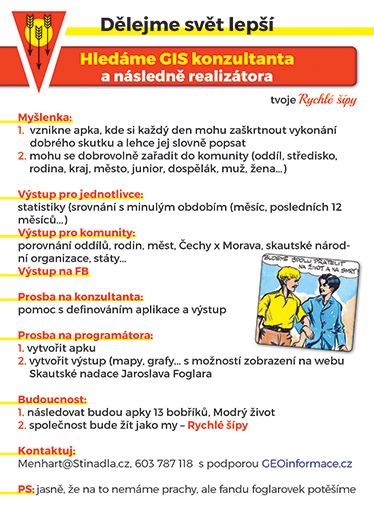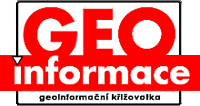zprávy
zdroje zpráv:DŮLEŽITÉ UPOZORNĚNÍ
7.6.2017 7:52 ČÚZK - předpisy a opatření zveřejnil novou aktualitu: DŮLEŽITÉ UPOZORNĚNÍVážení klienti,
V pátek 16.června 2017 dojde mimořádně k ukončení provozu našeho pracoviště již v 11:00 hodin. Důvodem je plánovaná instalace nové verze informačního systému katastru nemovitostí.
Děkujeme za pochopení.
DŮLEŽITÉ UPOZORNĚNÍ
7.6.2017 7:52 ČÚZK /Urady/Katastralni-urady/Katastralni-urady/Katastralni-urad-pro-Stredocesky-kraj/Katastralni-pracoviste/KP-Kutna-Hora/O-uradu/Aktuality/DULEZITE-UPOZORNENIDŮLEŽITÉ UPOZORNĚNÍ
7.6.2017 7:51 ČÚZK - předpisy a opatřeníVážení klienti,
V pátek 16. června 2017 dojde mimořádně k ukončení provozu Katastrálního úřadu pro Středočeský kraj, katastrální pracoviště Mělník již v 11:00 hodin. Důvodem je plánovaná instalace nové verze informačního systému katastru nemovitostí.
Děkujeme za pochopení.
DŮLEŽITÉ UPOZORNĚNÍ
7.6.2017 7:51 ČÚZK /Urady/Katastralni-urady/Katastralni-urady/Katastralni-urad-pro-Stredocesky-kraj/Katastralni-pracoviste/KP-Melnik/O-uradu/Aktuality/DULEZITE-UPOZORNENIDŮLEŽITÉ UPOZORNĚNÍ
7.6.2017 7:51 ČÚZK - předpisy a opatření zveřejnil novou aktualitu:Vážení klienti,
V pátek 16. června 2017 dojde mimořádně k ukončení provozu Katastrálního úřadu pro Středočeský kraj, katastrální pracoviště Mělník již v 11:00 hodin. Důvodem je plánovaná instalace nové verze informačního systému katastru nemovitostí.
Děkujeme za pochopení.
DŮLEŽITÉ UPOZORNĚNÍ
7.6.2017 7:37 ČÚZK - předpisy a opatření DŮLEŽITÉ UPOZORNĚNÍVážení klienti,
V pátek 16. června 2017 dojde mimořádně k ukončení provozu Katastrálního úřadu pro Středočeský kraj, KP Příbram již v 11:00 hodin. Důvodem je plánovaná instalace nové verze informačního systému katastru nemovitostí.
Děkujeme za pochopení.
DŮLEŽITÉ UPOZORNĚNÍ
7.6.2017 7:37 ČÚZK - předpisy a opatření DŮLEŽITÉ UPOZORNĚNÍVážení klienti,
v pátek 16.června 2017 dojde mimořádně k ukončení provozu našeho pracoviště již v 11:00 hodin. Důvodem je plánovaná instalace nové verze informačního systému katastru nemovitostí.
Děkujeme za pochopení.
DŮLEŽITÉ UPOZORNĚNÍ
7.6.2017 7:37 ČÚZK - předpisy a opatření zveřejnil novou aktualitu: DŮLEŽITÉ UPOZORNĚNÍVážení klienti,
v pátek 16.června 2017 dojde mimořádně k ukončení provozu našeho pracoviště již v 11:00 hodin. Důvodem je plánovaná instalace nové verze informačního systému katastru nemovitostí.
Děkujeme za pochopení.
DŮLEŽITÉ UPOZORNĚNÍ
7.6.2017 7:37 ČÚZK - předpisy a opatření Vážení klienti,V pátek 16. června 2017 dojde mimořádně k ukončení provozu Katastrálního úřadu pro Středočeský kraj již v 11:00 hodin. Důvodem je plánovaná instalace nové verze informačního systému katastru nemovitostí.
Děkujeme za pochopení.
DŮLEŽITÉ UPOZORNĚNÍ
7.6.2017 7:37 ČÚZK /Urady/Katastralni-urady/Katastralni-urady/Katastralni-urad-pro-Stredocesky-kraj/Katastralni-pracoviste/KP-Pribram/O-uradu/Aktuality/DULEZITE-UPOZORNENIDŮLEŽITÉ UPOZORNĚNÍ
7.6.2017 7:37 ČÚZK - předpisy a opatření DŮLEŽITÉ UPOZORNĚNÍVážení klienti,
V pátek 16. června 2017 dojde mimořádně k ukončení provozu Katastrálního úřadu pro Středočeský kraj, KP Příbram již v 11:00 hodin. Důvodem je plánovaná instalace nové verze informačního systému katastru nemovitostí.
Děkujeme za pochopení.
Hexagon Safety & Infrastructure Listed on G-Cloud 9 Framework
7.6.2017 4:00 Hexagon Safety & InfrastructureHexagon Safety & Infrastructure has been listed on the G-Cloud 9 framework within the Crown Commercial Service (CCS) Digital Marketplace, providing UK public sector organisations easier access to Hexagon’s leading geospatial software and services.
CCS acts on behalf of the Crown to drive savings for the taxpayer and improve the quality of commercial and procurement activity. The G-Cloud framework is an agreement between the government and suppliers who provide cloud-based services.
Hexagon’s G-Cloud offerings in the Cloud Software and Cloud Support lots are:
- GeoMedia Online and IMAGINE Online deliver desktop GIS and remote sensing packages using Native-as-a-Service to allow agencies to retain their data locally and subscribe to these services as required.
- GeoMedia WebMap On Your Cloud provides agencies with supported web mapping technology on their hosted cloud infrastructure. The agencies’ geospatial data can then be distributed via standard web services and portals to their employees as well as to external users.
- Mobile Alert is a reporting tool with a simple user interface, allowing the public and employees to report infrastructure issue or incidents via a mobile device. The reports include notes, a photo and location information, allowing the hosted service to send the details to the correct authority for the geographic area.
- Hexagon’s GIS Cloud Consultancy has been listed within the Cloud Support area. Hexagon provides a range of professional services covering business analysis, user needs analysis, requirements definition, system development, testing, training and project management, all in the context of delivering business benefit via the customization or configuration of Hexagon GIS cloud applications.
Listed under its legal entity, Intergraph (UK) Ltd., Hexagon Safety & Infrastructure is planning to increase its available cloud-based services as new products are released.
For further details, see Digital Marketplace or contact enquiries-uk@hexagonsi.com.
Hexagon Safety & Infrastructure Listed on G-Cloud 9 Framework
7.6.2017 4:00 Hexagon Safety & InfrastructureHexagon Safety & Infrastructure has been listed on the G-Cloud 9 framework within the Crown Commercial Service (CCS) Digital Marketplace, providing UK public sector organisations easier access to Hexagon’s leading geospatial software and services.
CCS acts on behalf of the Crown to drive savings for the taxpayer and improve the quality of commercial and procurement activity. The G-Cloud framework is an agreement between the government and suppliers who provide cloud-based services.
Hexagon’s G-Cloud offerings in the Cloud Software and Cloud Support lots are:
- GeoMedia Online and IMAGINE Online deliver desktop GIS and remote sensing packages using Native-as-a-Service to allow agencies to retain their data locally and subscribe to these services as required.
- GeoMedia WebMap On Your Cloud provides agencies with supported web mapping technology on their hosted cloud infrastructure. The agencies’ geospatial data can then be distributed via standard web services and portals to their employees as well as to external users.
- Mobile Alert is a reporting tool with a simple user interface, allowing the public and employees to report infrastructure issue or incidents via a mobile device. The reports include notes, a photo and location information, allowing the hosted service to send the details to the correct authority for the geographic area.
- Hexagon’s GIS Cloud Consultancy has been listed within the Cloud Support area. Hexagon provides a range of professional services covering business analysis, user needs analysis, requirements definition, system development, testing, training and project management, all in the context of delivering business benefit via the customization or configuration of Hexagon GIS cloud applications.
Listed under its legal entity, Intergraph (UK) Ltd., Hexagon Safety & Infrastructure is planning to increase its available cloud-based services as new products are released.
For further details, see Digital Marketplace or contact enquiries-uk@hexagonsi.com.
Hexagon Safety & Infrastructure Listed on G-Cloud 9 Framework
7.6.2017 4:00 Hexagon Safety & InfrastructureHexagon Safety & Infrastructure has been listed on the G-Cloud 9 framework within the Crown Commercial Service (CCS) Digital Marketplace, providing UK public sector organisations easier access to Hexagon’s leading geospatial software and services.
CCS acts on behalf of the Crown to drive savings for the taxpayer and improve the quality of commercial and procurement activity. The G-Cloud framework is an agreement between the government and suppliers who provide cloud-based services.
Hexagon’s G-Cloud offerings in the Cloud Software and Cloud Support lots are:
- GeoMedia Online and IMAGINE Online deliver desktop GIS and remote sensing packages using Native-as-a-Service to allow agencies to retain their data locally and subscribe to these services as required.
- GeoMedia WebMap On Your Cloud provides agencies with supported web mapping technology on their hosted cloud infrastructure. The agencies’ geospatial data can then be distributed via standard web services and portals to their employees as well as to external users.
- Mobile Alert is a reporting tool with a simple user interface, allowing the public and employees to report infrastructure issue or incidents via a mobile device. The reports include notes, a photo and location information, allowing the hosted service to send the details to the correct authority for the geographic area.
- Hexagon’s GIS Cloud Consultancy has been listed within the Cloud Support area. Hexagon provides a range of professional services covering business analysis, user needs analysis, requirements definition, system development, testing, training and project management, all in the context of delivering business benefit via the customization or configuration of Hexagon GIS cloud applications.
Listed under its legal entity, Intergraph (UK) Ltd., Hexagon Safety & Infrastructure is planning to increase its available cloud-based services as new products are released.
For further details, see Digital Marketplace or contact enquiries-uk@hexagonsi.com.
INSPIRE téma Územní správní jednotky (AU)
7.6.2017 2:00 Cenia - Katalog metadat ČR - INSPIRE Data odpovídají směrnici INSPIRE pro téma Územní správní jednotky (AU) a datové specifikaci pro ELF ve verzi 1.0. Vychází především z projektu RÚIAN (Registr územní identifikace, adres a nemovitostí), který je součástí základních registrů České Republiky a obsahuje informace o územní identifikaci, adresách a nemovitostech. Data publikovaná v rámci INSPIRE harmonizované sady Územní správní jednotky obsahují pouze územní správní jednotky, jejich hranice a statistické jednotky NUTS1 a NUTS3, které jsou v rámci České republiky na stejné úrovni jako je stát a kraje. Územní správní jednotky jsou stát, kraje (vyšší územní samospravné celky), okresy a obce. Datová sada pokrývá celé území České republiky. Hranice územních samosprávných jednotek jsou vedeny od trojmezí do trojmezí na nejnižší úrovni členění, tedy obcí. Více v zákoně č. 111/2009 Sb., o základních registrech a ve vyhlášce č. 359/2011 Sb., o základním registru územní identifikace, adres a nemovitostí v platných zněních, INSPIRE Data Specification on Administrative Units v 3.0.1 z 26.4.2010 a ELF Data Specification v1.0. V datech chybí obec Strýčice, protože nemá žádné katastrální území. Data ve formátu GML 3.2.1 jsou validní proti schématu XML pro INSPIRE téma Územní správní jednotky ve verzi 4.0 a proti schématu pro prostorová data ELF ve verzi 1.0.Prohlížecí služba Esri ArcGIS Server - Jména států a jejich územních částí
7.6.2017 2:00 Cenia - Katalog metadat ČR - INSPIRE Prohlížecí služba Esri ArcGIS Server - Jména států a jejich územních částí je poskytována jako veřejná prohlížecí služba nad nejnovějším stavem názvů států. Vychází z názvoslovného seznamu Jména států a jejich územních částí z edice Geografické názvoslovné seznamy OSN - ČR. Jedná se o prohlížecí službu poskytovanou technologií Esri ArcGIS Server. Službu lze využít prostřednictvím přístupových rozhraní REST, SOAP a WMTS formou optimalizovaných mapových dlaždic v souřadnicovém systému WGS 84 / Pseudo-Mercator (EPSG 3857 alias 900913). Dále lze službu využít v různých souřadnicových systémech (definovaných v capabilities) prostřednictvím standardu WMS.INSPIRE téma Budovy (BU)
7.6.2017 2:00 Cenia - Katalog metadat ČR - INSPIRE Data odpovídají směrnici INSPIRE pro téma budovy (BU). Data pochází částečně z projektu RÚIAN (Registr územní identifikace, adres a nemovitostí), který je součástí základních registrů České Republiky a obsahuje informace o územní identifikaci, adresách a nemovitostech, a částečně z ISKN (Informační systém katastru nemovistostí). Zdrojem informací o budovách v ISKN je objekt Stavba, v RÚIAN je to Stavební objekt. Většina Staveb je zároveň Stavebními objekty, ale jsou případy, kdy tomu tak není. Kromě Budov datová sada obsahuje i části budov, které jsou pro potřeby INSPIRE vyjádřeny vchody z RÚIAN. Vchody obsahují informace o počtu podlaží, technickoekonomických atributech apod. Datová sada pokrývá celé území české republiky. V datové sadě není uvedeno 1,87%, t.j. 78852 budov (k 06. 06. 2017), protože neobsahují definiční bod ani polygon. Více v zákoně č. 111/2009 Sb., o základních registrech, ve vyhlášce č. 359/2011 Sb., o základním registru územní identifikace, adres a nemovitostí v platných zněních, v zákoně 256/2013 Sb., o katastru nemovitostí, v katastrální vyhlášce č. 357/2013 Sb. v platném znění a INSPIRE Data Specification on Buildings v 3.0 z 13.12.2013. Data ve formátu GML 3.2.1 jsou validní proti schématu XML pro INSPIRE téma Budovy ve verzi 4.0 a proti schématu pro prostorová data ELF ve verzi 1.0.Prohlížecí služba Esri ArcGIS Server - Geomorfologické jednotky ČR – 1998
7.6.2017 2:00 Cenia - Katalog metadat ČR - INSPIRE Prohlížecí služba Esri ArcGIS Server - Geomorfologické jednotky ČR - 1998 je poskytována jako veřejná prohlížecí služba poskytující přehled o geomorfologických jednotkách České republiky. Zobrazuje mapu geomorfologického členění Česka, tak jak bylo zpracováno v letech 1994-1998 zákresem do Základních map ČR v měřítku 1:100 000 RNDr. Břetislavem Balatkou CSc pro Zeměměřický úřad. Členění začíná na hierarchicky nejvyšší úrovni subprovincií a pokračuje přes oblasti, celky, podcelky, okrsky a podokrsky až do nejpodrobnější úrovně částí. Jedná se o prohlížecí službu poskytovanou technologií Esri ArcGIS Server. Službu lze využít prostřednictvím přístupových rozhraní REST, SOAP a WMTS formou optimalizovaných mapových dlaždic v souřadnicovém systému S-JTSK/Krovak East North (EPSG 5514). Dále lze službu využít v různých souřadnicových systémech (definovaných v capabilities) prostřednictvím standardu WMS.Katastrální mapa v rastrové podobě poskytovaná v e-shopu
7.6.2017 2:00 Cenia - Katalog metadat ČR - INSPIRE Katastrální mapa v rastrové podobě je poskytována za úplatu a obsahuje analogovou mapu s kompletní kresbou. Analogová mapa pokrývá 6,90 % území České republiky, což je 5 439,29km2. Více katastrální vyhláška č.357/2013 Sb. v platném znění.Prohlížecí služba Esri ArcGIS Server - Česká jména moří a mezinárodních území - Antarktida
7.6.2017 2:00 Cenia - Katalog metadat ČR - INSPIRE Prohlížecí služba Esri ArcGIS Server - Česká jména moří - Antarktida je poskytována jako veřejná prohlížecí služba nad daty názvoslovného seznamu Česká jména moří a mezinárodních území z edice Geografické názvoslovné seznamy OSN - ČR. Jedná se o prohlížecí službu poskytovanou technologií Esri ArcGIS Server. Službu lze využít prostřednictvím přístupových rozhraní REST, SOAP a WMTS formou optimalizovaných mapových dlaždic v souřadnicovém systému WGS 84 / Pseudo-Mercator (EPSG 3857 alias 900913). Dále lze službu využít v různých souřadnicových systémech (definovaných v capabilities) prostřednictvím standardu WMS.INSPIRE téma Adresy (AD)
7.6.2017 2:00 Cenia - Katalog metadat ČR - INSPIRE Data odpovídají směrnici INSPIRE pro téma adresy (AD). Vychází především z projektu RÚIAN (Registr územní identifikace, adres a nemovitostí), který je součástí základních registrů České Republiky a obsahuje informace o územní identifikaci, adresách a nemovitostech. Data publikovaná v rámci INSPIRE obsahují pouze adresní místa a jejich komponenty, kterými jsou stát, obec, část obce, městský obvod v Praze (MOP), městký obvod/městská část (MO/MČ), ulice a pošta a to na území celé České Republiky. Obsahují rozvněž geometrii, která určuje definiční bod adresního místa. V datové sadě nění uvedeno 2,07%, t.j. 60107 adresních míst (k 06. 06. 2017), protože neobsahují definiční bod, podle kterého by je bylo možné prostorově určit. Více v zákoně č. 111/2009 Sb., o základních registrech a ve vyhlášce č. 359/2011 Sb., o základním registru územní identifikace, adres a nemovitostí v platných zněních a INSPIRE Data Specification on Addresses v 3.0.1 z 26.4.2010. Data ve formátu GML 3.2.1 jsou validní proti schématu XML pro INSPIRE téma Adresy ve verzi 4.0 a proti schématu pro prostorová data ELF ve verzi 1.0.INSPIRE téma Parcely (CP)
7.6.2017 2:00 Cenia - Katalog metadat ČR - INSPIRE Data odpovídají směrnici INSPIRE pro téma katastrální parcely (CP). Vychází z katastrální mapy, která je závazným státním mapovým dílem velkého měřítka, obsahuje body polohového bodového pole, polohopis a popis a může mít formu digitální mapy, analogové mapy nebo digitalizované mapy. Data publikovaná v rámci INSPIRE obsahují pouze katastrální území (pro celou Českou Republiku) a parcely a jejich hranice z území, kde je digitální mapa (k 06. 06. 2017 je to 90,59% území České republiky, t.j. 71 441,61km2). Více katastrální zákon 344/1992 SB., katastrální vyhláška č.26/2007 Sb. v platném znění a INSPIRE Data Specification on Cadastral Parcels v 3.0.1. Data ve formátu GML 3.2.1 jsou validní proti schématu XML pro INSPIRE téma Parcely ve verzi 4.0 a proti schématu pro prostorová data ELF ve verzi 1.0.Prohlížecí služba Esri ArcGIS Server - Česká jména moří a mezinárodních území - Arktida
7.6.2017 2:00 Cenia - Katalog metadat ČR - INSPIRE Prohlížecí služba Esri ArcGIS Server - Česká jména moří a mezinárodních území - Arktida je poskytována jako veřejná prohlížecí služba nad daty názvoslovného seznamu Česká jména moří a mezinárodních území z edice Geografické názvoslovné seznamy OSN – ČR. Jedná se o prohlížecí službu poskytovanou technologií Esri ArcGIS Server. Službu lze využít prostřednictvím přístupových rozhraní REST, SOAP a WMTS formou optimalizovaných mapových dlaždic v souřadnicovém systému WGS 84 / Pseudo-Mercator (EPSG 3857 alias 900913). Dále lze službu využít v různých souřadnicových systémech (definovaných v capabilities) prostřednictvím standardu WMS.Prohlížecí služba Esri ArcGIS Server - Česká jména moří a mezinárodních území
7.6.2017 2:00 Cenia - Katalog metadat ČR - INSPIRE Prohlížecí služba Esri ArcGIS Server - Česká jména moří a mezinárodních území je poskytována jako veřejná prohlížecí služba nad daty názvoslovného seznamu Česká jména moří a mezinárodních území z edice Geografické názvoslovné seznamy OSN - ČR. Jedná se o prohlížecí službu poskytovanou technologií Esri ArcGIS Server. Službu lze využít prostřednictvím přístupových rozhraní REST, SOAP a WMTS formou optimalizovaných mapových dlaždic v souřadnicovém systému WGS 84 / Pseudo-Mercator (EPSG 3857 alias 900913). Dále lze službu využít v různých souřadnicových systémech (definovaných v capabilities) prostřednictvím standardu WMS.Oznámení o vyhlášení výběrového řízení na služební místo odborný rada oddělení správy majetku státu, Krajský pozemkový úřad pro Plzeňský kraj
7.6.2017 0:00 Státní pozemkový úřad Ústřední ředitelka Státního pozemkového úřadu, jako služební orgán příslušný podle § 10 odst. 1 písm. f) zákona č. 234/2014 Sb., o státní službě (dále jen „zákon“), vyhlašuje výběrové řízení na služební místo odborný rada oddělení správy majetku státu, Krajský pozemkový úřad pro Plzeňský kraj.Firma Český pozemkový fond nemá nic společného s SPÚ
7.6.2017 0:00 Státní pozemkový úřad Poslední dobou se na regionální pobočky Státního pozemkového úřadu (SPÚ) obracejí majitelé zemědělské půdy s dotazem, zda má SPÚ něco společného s Českým pozemkovým fondem, který jim nabízí odkoupení jejich půdy. Není tomu tak.Oznámení o přerušení provozu na Pobočce Vyškov
7.6.2017 0:00 Státní pozemkový úřad Z důvodu čištění podlahových krytin po rekonstrukci objektu bude ve středu 14. 6. 2017 přerušen provoz na Pobočce Vyškov (KPÚ pro Jihomoravský kraj).Oznámení o vyhlášení výběrového řízení na služební místo vrchní referent / rada oddělení rozpočtu, odbor ekonomický
7.6.2017 0:00 Státní pozemkový úřad Ústřední ředitelka Státního pozemkového úřadu, jako služební orgán příslušný podle § 10 odst. 1 písm. f) zákona č. 234/2014 Sb., o státní službě (dále jen „zákon“), vyhlašuje výběrové řízení na služební místo vrchní referent / rada oddělení rozpočtu, odbor ekonomický.Změna úředních hodin 9.6.2017
6.6.2017 17:23 ČÚZK /Urady/Katastralni-urady/Katastralni-urady/Katastralni-urad-pro-Stredocesky-kraj/Katastralni-pracoviste/KP-Slany/O-uradu/Aktuality/Zmena-urednich-hodin-9-6-2017Změna úředních hodin 9.6.2017
6.6.2017 17:23 ČÚZK - předpisy a opatření UPOZORNĚNÍVážení klienti,
v pátek 16.června 2017 dojde mimořádně k ukončení provozu našeho pracoviště již v 11:00 hodin. Důvodem je plánovaná instalace nové verze informačního systému katastru nemovitostí.
Děkujeme za pochopení.
Nová publikace "Vývoj krajinného pokryvu dle CORINE Land Cover na území ČR v letech 1990–2012"
6.6.2017 16:01 CENIA - národní geoportál INSPIRE CENIA vydává publikaci s názvem Vývoj krajinného pokryvu dle CORINE Land Cover na území ČR v letech 1990–2012. Kolektiv autorů v publikaci představuje nejvýraznější změny krajinného pokryvu dle CORINE Land Cover, které se v České republice od roku 1990 udály. Jedná se především o procesy urbanizace, transformace zemědělské výroby, zvyšování podílu lesních porostů při současné postupné přeměně...Referent KN – návrh zápisu v katastru
6.6.2017 15:57 ČÚZK - předpisy a opatření Nově vyhlášené výběrové řízení na pracovní místo: Referent KN – návrh zápisu v katastruReferent KN – návrh zápisu v katastru
6.6.2017 15:57 ČÚZK - předpisy a opatření zveřejnil novou aktualitu: Nově vyhlášené výběrové řízení na pracovní místo: Referent KN – návrh zápisu v katastruReferent KN – návrh zápisu v katastru
6.6.2017 15:57 ČÚZK - předpisy a opatření Nově vyhlášené výběrové řízení na pracovní místo: Referent KN – návrh zápisu v katastruReferent KN – návrh zápisu v katastru
6.6.2017 15:55 ČÚZK - předpisy a opatření Katastrální úřad pro hlavní město Prahuvypisuje výběrové řízení na místo
Referent KN – návrh zápisu v katastru
Referent KN – návrh zápisu v katastru
6.6.2017 15:55 ČÚZK - předpisy a opatření Katastrální úřad pro hlavní město Prahuvypisuje výběrové řízení na místo
Referent KN – návrh zápisu v katastru
Referent KN – návrh zápisu v katastru
6.6.2017 15:55 ČÚZK /Urady/Katastralni-urady/Katastralni-urady/Katastralni-urad-pro-hlavni-mesto-Prahu/Volna-mista/Referent-KN-–-navrh-zapisu-v-katastruReferent KN – návrh zápisu v katastru
6.6.2017 15:55 ČÚZK - volná místa Katastrální úřad pro hlavní město Prahu, vypisuje výběrové řízení na místo Referent KN – návrh zápisu v katastruDůležité upozornění !
6.6.2017 15:29 ČÚZK /Urady/Katastralni-urady/Katastralni-urady/Katastralni-urad-pro-Stredocesky-kraj/Katastralni-pracoviste/KP-Beroun/O-uradu/Aktuality/Dulezite-upozorneni-!Důležité upozornění !
6.6.2017 15:29 ČÚZK - předpisy a opatření Český úřad zeměměřický a katastrální - Katastrální pracoviště Beroun zveřejnil novou aktualitu: Důležité upozornění !Vážení klienti,
na našem Katastrálním pracovišti započaly 21.8.2017 stavební práce na rekonstrukci a zateplení pláště budovy. Vzhledem k tomu, že práce probíhají za plného provozu úřadu, omlouváme se našim návštěvníkům za zhoršené podmínky.
Děkujeme za pochopení.
Důležité upozornění !
6.6.2017 15:29 ČÚZK - předpisy a opatření Český úřad zeměměřický a katastrální zveřejnil novou aktualitu: Důležité upozornění !Vážení klienti,
na našem Katastrálním pracovišti započaly 21.8.2017 stavební práce na rekonstrukci a zateplení pláště budovy. Vzhledem k tomu, že práce probíhají za plného provozu úřadu, omlouváme se našim návštěvníkům za zhoršené podmínky.
Děkujeme za pochopení.
Důležité upozornění !
6.6.2017 15:29 ČÚZK - předpisy a opatření Důležité upozornění !Vážení klienti,
V pátek 16.června 2017 dojde mimořádně k ukončení provozu našeho pracoviště již v 11:00 hodin. Důvodem je plánovaná instalace nové verze informačního systému katastru nemovitostí.
Děkujeme za pochopení.
Důležité upozornění !
6.6.2017 15:29 ČÚZK - předpisy a opatření zveřejnil novou aktualitu: Důležité upozornění !Vážení klienti,
V pátek 16.června 2017 dojde mimořádně k ukončení provozu našeho pracoviště již v 11:00 hodin. Důvodem je plánovaná instalace nové verze informačního systému katastru nemovitostí.
Děkujeme za pochopení.
20170606
6.6.2017 14:34 ČÚZK /Urady/Katastralni-urady/Katastralni-urady/Katastralni-urad-pro-Stredocesky-kraj/O-uradu/Aktuality/2017060620170606
6.6.2017 14:34 ČÚZK - předpisy a opatření DŮLEŽITÉ UPOZORNĚNÍVážení klienti,
V pátek 16.června 2017 dojde mimořádně k ukončení provozu našeho pracoviště již v 11:00 hodin. Důvodem je plánovaná instalace nové verze informačního systému katastru nemovitostí.
Děkujeme za pochopení.
20170606
6.6.2017 14:34 ČÚZK - předpisy a opatření DŮLEŽITÉ UPOZORNĚNÍVážení klienti,
V pátek 16.června 2017 dojde mimořádně k ukončení provozu Katastrálního úřadu pro Středočeský kraj již v 11:00 hodin. Důvodem je plánovaná instalace nové verze informačního systému katastru nemovitostí.
Děkujeme za pochopení.
20170606
6.6.2017 14:34 ČÚZK - předpisy a opatření zveřejnil novou aktualitu: DŮLEŽITÉ UPOZORNĚNÍVážení klienti,
V pátek 16.června 2017 dojde mimořádně k ukončení provozu Katastrálního úřadu pro Středočeský kraj již v 11:00 hodin. Důvodem je plánovaná instalace nové verze informačního systému katastru nemovitostí.
Děkujeme za pochopení.
Contract to bring EGNOS to next level
6.6.2017 13:44 ESA Navigation
ESA has signed a contract with Thales Alenia Space for an upgrade of Europe’s EGNOS satellite navigation augmentation system, which underpins the safety-critical use of satnav across our continent.
Nová mapová služba "místní Agenda 21" na Národním geoportálu INSPIRE
6.6.2017 13:39 CENIA - národní geoportál INSPIRE Na Národním geoportálu INSPIRE byla vytvořena nová mapová služba "místní Agenda 21" a mapová kompozice "CENIA – místní Agenda 21“. Služba a mapová kompozice obsahují přehled o realizátorech místní Agendy 21 v České republice v letech 2006–2016. Konkrétně se jedná o aktivní obce, kraje a mikroregiony a v letech 2015 a 2016 i o místní akční skupiny. Místní Agenda 21 je nástroj pro...Uzavření pracovišť
6.6.2017 12:54 ČÚZK /Urady/Katastralni-urady/Katastralni-urady/Katastralni-urad-pro-Liberecky-kraj/O-uradu/Aktuality/Uzavreni-pracovistUzavření pracovišť
6.6.2017 12:54 ČÚZK - předpisy a opatření Vážení klienti, dne 16. 6. 2017 budou všechna katastrální pracoviště Katastrálního úřadu pro Liberecký kraj od 11:00 hod. uzavřena pro veřejnost. Důvodem jsou práce spojené s instalací nové verze aplikačního programového vybavení informačního systému katastru nemovitostí. Věříme, že situaci pochopíte, za případné problémy se omlouváme. Ing. Lubomír Týč ředitel Katastrálního úřadu pro Liberecký krajUzavření pracovišť
6.6.2017 12:54 ČÚZK - předpisy a opatření zveřejnil novou aktualitu: Vážení klienti, dne 16. 6. 2017 budou všechna katastrální pracoviště Katastrálního úřadu pro Liberecký kraj od 11:00 hod. uzavřena pro veřejnost. Důvodem jsou práce spojené s instalací nové verze aplikačního programového vybavení informačního systému katastru nemovitostí. Věříme, že situaci pochopíte, za případné problémy se omlouváme. Ing. Lubomír Týč ředitel Katastrálního úřadu pro Liberecký krajodborný referent v oddělení dokumentace katastru nemovitostí Katastrálního pracoviště Chrudim
6.6.2017 12:41 ČÚZK - předpisy a opatření Katastrální úřad pro Pardubický kraj Katastrální pracoviště Chrudimvypisuje výběrové řízení na místo
odborný referent v oddělení dokumentace katastru nemovitostí Katastrálního pracoviště Chrudim
odborný referent v oddělení dokumentace katastru nemovitostí Katastrálního pracoviště Chrudim
6.6.2017 12:41 ČÚZK - volná místa Katastrální úřad pro Pardubický kraj, Katastrální pracoviště Chrudim vypisuje výběrové řízení na místo odborný referent v oddělení dokumentace katastru nemovitostí Katastrálního pracoviště Chrudimodborný referent v oddělení dokumentace katastru nemovitostí Katastrálního pracoviště Chrudim
6.6.2017 12:41 ČÚZK - předpisy a opatření Katastrální úřad pro Pardubický kraj Katastrální pracoviště Chrudimvypisuje výběrové řízení na místo
odborný referent v oddělení dokumentace katastru nemovitostí Katastrálního pracoviště Chrudim
odborný referent v oddělení dokumentace katastru nemovitostí Katastrálního pracoviště Chrudim
6.6.2017 12:41 ČÚZK /Urady/Katastralni-urady/Katastralni-urady/Katastralni-urad-pro-Pardubicky-kraj/Uredni-deska/Oznameni-a-jina-uredni-sdeleni/Volna-mista/odborny-referent-v-oddeleni-dokumentace-katastru-nBlíží se uzávěrka přihlášek do studentské soutěže
6.6.2017 12:00 ARCDATASoutěž pro studenty, kteří se ve svých projektech věnují tematice GIS – Student GIS Projekt – proběhne 13. září na Fakultě životního prostředí ČZU. Stále nám ještě můžete zaslat svou přihlášku.
Neváhejte a přihlaste své seminární, bakalářské, diplomové nebo dizertační práce, a to nejpozději 15. června 2017.
Všechny důležité informace a termíny naleznete na stránkách soutěže nebo na facebooku.
Kosmonaut Thomas Pesquet se vrátil na Zemi
6.6.2017 11:40 Český Kosmický PortálKosmonaut ESA Thomas Pesquet přistál v pátek 2. června v kazašských stepích. Zpět na Zemi se vrátil v lodi Sojuz MS-03 společně s ruským velitelem Olegem Novickým po šestiměsíčním pobytu ve vesmíru. Loď dosedla ve 14:10 h GMT po čtyřhodinové cestě z Mezinárodní kosmické stanice.
Kosmonaut Thomas Pesquet se vrátil na Zemi
6.6.2017 11:40 Český Kosmický PortálKosmonaut ESA Thomas Pesquet přistál v pátek 2. června v kazašských stepích. Zpět na Zemi se vrátil v lodi Sojuz MS-03 společně s ruským velitelem Olegem Novickým po šestiměsíčním pobytu ve vesmíru. Loď dosedla ve 14:10 h GMT po čtyřhodinové cestě z Mezinárodní kosmické stanice.
Kosmonaut Thomas Pesquet se vrátil na Zemi
6.6.2017 11:40 Český Kosmický PortálKosmonaut ESA Thomas Pesquet přistál v pátek 2. června v kazašských stepích. Zpět na Zemi se vrátil v lodi Sojuz MS-03 společně s ruským velitelem Olegem Novickým po šestiměsíčním pobytu ve vesmíru. Loď dosedla ve 14:10 h GMT po čtyřhodinové cestě z Mezinárodní kosmické stanice.
DŮLEŽITÉ UPOZORNĚNÍ
6.6.2017 11:32 ČÚZK - předpisy a opatření DŮLEŽITÉ UPOZORNĚNÍVážení klienti,
V pátek 16.června 2017 dojde mimořádně k ukončení provozu našeho pracoviště již v 11:00 hodin. Důvodem je plánovaná instalace nové verze informačního systému katastru nemovitostí.
Děkujeme za pochopení.
DŮLEŽITÉ UPOZORNĚNÍ
6.6.2017 11:32 ČÚZK /Urady/Katastralni-urady/Katastralni-urady/Katastralni-urad-pro-Stredocesky-kraj/Katastralni-pracoviste/KP-Praha-zapad/O-uradu/Aktuality/DULEZITE-UPOZORNENIDŮLEŽITÉ UPOZORNĚNÍ
6.6.2017 11:32 ČÚZK - předpisy a opatření zveřejnil novou aktualitu: DŮLEŽITÉ UPOZORNĚNÍVážení klienti,
V pátek 16.června 2017 dojde mimořádně k ukončení provozu našeho pracoviště již v 11:00 hodin. Důvodem je plánovaná instalace nové verze informačního systému katastru nemovitostí.
Děkujeme za pochopení.
DŮLEŽITÉ UPOZORNĚNÍ
6.6.2017 11:32 ČÚZK - předpisy a opatření DŮLEŽITÉ UPOZORNĚNÍVážení klienti,
V pátek 16.června 2017 dojde mimořádně k ukončení provozu našeho pracoviště již v 11:00 hodin. Důvodem je plánovaná instalace nové verze informačního systému katastru nemovitostí.
Děkujeme za pochopení.
Nová mapová služba "Místní Agenda 21" na Národním geoportálu INSPIRE
6.6.2017 10:40 CENIA - národní geoportál INSPIRE Na Národním geoportálu INSPIRE byla vytvořena nová mapová "Místní Agenda 21" a mapová kompozice "CENIA – Místní Agenda 21“. Služba a mapová kompozice obsahují přehled o realizátorech místní Agendy 21 v České republice v letech 2006–2016. Konkrétně se jedná o aktivní obce, kraje a mikroregiony a v letech 2015 a 2016 i o místní akční skupiny. Místní Agenda 21 je nástroj pro uplatnění...Odborný referent/vrchní referent v oddělení dokumentace katastru nemovitostí Katastrálního pracovišt
6.6.2017 10:35 ČÚZK - volná místa Katastrální úřad pro Královéhradecký kraj, Katastrální pracoviště Trutnov vypisuje výběrové řízení na místo Odborný referent/vrchní referent v oddělení dokumentace katastru nemovitostí Katastrálního pracovištOdborný referent/vrchní referent v oddělení dokumentace katastru nemovitostí Katastrálního pracovišt
6.6.2017 10:35 ČÚZK - předpisy a opatření Katastrální úřad pro Královéhradecký kraj Katastrální pracoviště Trutnovvypisuje výběrové řízení na místo
Odborný referent/vrchní referent v oddělení dokumentace katastru nemovitostí Katastrálního pracoviště Trutnov
Odborný referent/vrchní referent v oddělení dokumentace katastru nemovitostí Katastrálního pracovišt
6.6.2017 10:35 ČÚZK /Urady/Katastralni-urady/Katastralni-urady/Katastralni-urad-pro-Kralovehradecky-kraj/Uredni-deska/Oznameni-a-jina-uredni-sdeleni/Volna-mista/Odborny-referent-vrchni-referent-v-oddeleni-do-(1)Odborný referent/vrchní referent v oddělení dokumentace katastru nemovitostí Katastrálního pracovišt
6.6.2017 10:35 ČÚZK - předpisy a opatření Katastrální úřad pro Královéhradecký kraj Katastrální pracoviště Trutnovvypisuje výběrové řízení na místo
Odborný referent/vrchní referent v oddělení dokumentace katastru nemovitostí Katastrálního pracoviště Trutnov
20170606-Odborný rada právního odděle
6.6.2017 10:26 ČÚZK - předpisy a opatření zveřejnil novou aktualitu: Na úřední elektronické desce Katastrálního úřadu pro Středočeský kraj, v sekci "Oznámení a jiná úřední sdělení" bylo vystaveno "Oznámení o vyhlášení výběrového řízení na služební místo Vedoucí právního oddělení – odborný rada Katastrálního pracoviště Praha – západ"20170606-Odborný rada právního odděle
6.6.2017 10:26 ČÚZK - předpisy a opatření Na úřední elektronické desce Katastrálního úřadu pro Středočeský kraj, v sekci "Oznámení a jiná úřední sdělení" bylo vystaveno "Oznámení o vyhlášení výběrového řízení na služební místo Vedoucí právního oddělení – odborný rada Katastrálního pracoviště Praha – západ"20170606-Odborný rada právního odděle
6.6.2017 10:26 ČÚZK /Urady/Katastralni-urady/Katastralni-urady/Katastralni-urad-pro-Stredocesky-kraj/Katastralni-pracoviste/KP-Praha-zapad/O-uradu/Aktuality/20140318-Geodet-Melnik-(6)20170606-Vedoucí právního oddělení – odborný rada
6.6.2017 10:09 ČÚZK - předpisy a opatření zveřejnil novou aktualitu: Na úřední elektronické desce Katastrálního úřadu pro Středočeský kraj, v sekci "Oznámení a jiná úřední sdělení" bylo vystaveno "Oznámení o vyhlášení výběrového řízení na služební místo Vedoucí právního oddělení – odborný rada Katastrálního pracoviště Praha – západ"20170606-Vedoucí právního oddělení – odborný rada
6.6.2017 10:09 ČÚZK /Urady/Katastralni-urady/Katastralni-urady/Katastralni-urad-pro-Stredocesky-kraj/Katastralni-pracoviste/KP-Praha-vychod/O-uradu/Aktuality/20140318-Geodet-Melnik-(1)20170606-Vedoucí právního oddělení – odborný rada
6.6.2017 10:09 ČÚZK - předpisy a opatření zveřejnil novou aktualitu: Na úřední elektronické desce Katastrálního úřadu pro Středočeský kraj, v sekci "Oznámení a jiná úřední sdělení" bylo vystaveno "Oznámení o vyhlášení výběrového řízení na služební místo Vedoucí právního oddělení – odborný rada Katastrálního pracoviště Praha – západ"20170606-Vedoucí právního oddělení – odborný rada
6.6.2017 10:09 ČÚZK - předpisy a opatření zveřejnil novou aktualitu: Na úřední elektronické desce Katastrálního úřadu pro Středočeský kraj, v sekci "Oznámení a jiná úřední sdělení" bylo vystaveno "Oznámení o vyhlášení výběrového řízení na služební místo Vedoucí právního oddělení – odborný rada Katastrálního pracoviště Praha – západ"20170606-Vedoucí právního oddělení – odborný rada
6.6.2017 10:09 ČÚZK /Urady/Katastralni-urady/Katastralni-urady/Katastralni-urad-pro-Stredocesky-kraj/O-uradu/Aktuality/20140318-Geodet-Melnik-(6)20170606-Vedoucí právního oddělení – odborný rada
6.6.2017 10:09 ČÚZK /Urady/Katastralni-urady/Katastralni-urady/Katastralni-urad-pro-Stredocesky-kraj/20140318-Geodet-Melnik-(6)20170606-Vedoucí právního oddělení – odborný rada
6.6.2017 10:09 ČÚZK - předpisy a opatření Na úřední elektronické desce Katastrálního úřadu pro Středočeský kraj, v sekci "Oznámení a jiná úřední sdělení" bylo vystaveno "Oznámení o vyhlášení výběrového řízení na služební místo Vedoucí právního oddělení – odborný rada Katastrálního pracoviště Praha – západ"Vedoucí právního oddělení – odborný rada Katastrálního pracoviště
6.6.2017 10:06 ČÚZK - volná místa Katastrální úřad pro Středočeský kraj, Katastrální pracoviště Praha-západ vypisuje výběrové řízení na místo Vedoucí právního oddělení – odborný rada Katastrálního pracovištěVedoucí právního oddělení – odborný rada Katastrálního pracoviště
6.6.2017 10:06 ČÚZK /Urady/Katastralni-urady/Katastralni-urady/Katastralni-urad-pro-Stredocesky-kraj/Uredni-deska/Oznameni-a-jina-uredni-sdeleni/Volna-mista/Vedouci-pravniho-oddeleni-–-odborny-rada-KatastralVedoucí právního oddělení – odborný rada
6.6.2017 10:06 ČÚZK /Urady/Katastralni-urady/Katastralni-urady/Katastralni-urad-pro-Stredocesky-kraj/Uredni-deska/Oznameni-a-jina-uredni-sdeleni/Volna-mista/Vedouci-pravniho-oddeleni-–-odborny-rada-KatastralVedoucí právního oddělení – odborný rada
6.6.2017 10:06 ČÚZK - volná místa Katastrální úřad pro Středočeský kraj, Katastrální pracoviště Praha-západ vypisuje výběrové řízení na místo Vedoucí právního oddělení – odborný radaVedoucí právního oddělení – odborný rada
6.6.2017 10:06 ČÚZK - předpisy a opatření Katastrální úřad pro Středočeský kraj Katastrální pracoviště Praha-západvypisuje výběrové řízení na místo vedoucí právního oddělení – odborný rada Katastrálního pracoviště
Vedoucí právního oddělení – odborný rada
Vedoucí právního oddělení – odborný rada
6.6.2017 10:06 ČÚZK - předpisy a opatření Katastrální úřad pro Středočeský kraj Katastrální pracoviště Praha-západvypisuje výběrové řízení na místo vedoucí právního oddělení – odborný rada Katastrálního pracoviště
Vedoucí právního oddělení – odborný rada
20170606 - volné místo - informatik KP Most
6.6.2017 10:02 ČÚZK - předpisy a opatření zveřejnil novou aktualitu: Oznámení o vyhlášení výběrového řízení na služební místo - Vrchní referent/rada (informatik) Katastrálního pracoviště Most na Katastrálním úřadu pro Ústecký kraj20170606 - volné místo - informatik KP Most
6.6.2017 10:02 ČÚZK - předpisy a opatření Oznámení o vyhlášení výběrového řízení na služební místo - Vrchní referent/rada (informatik) Katastrálního pracoviště Most na Katastrálním úřadu pro Ústecký kraj20170606 - volné místo - informatik KP Most
6.6.2017 10:02 ČÚZK /Urady/Katastralni-urady/Katastralni-urady/Katastralni-urad-pro-Ustecky-kraj/O-uradu/Aktuality/20170509-volne-misto-informatik-KP-Most-(3)Nové pracovní nabídky
6.6.2017 10:01 GISportal.cz Blíží se konec akademického roku, tak přinášíme několik pracovních nabídek nejen pro čerstvé absolventy. V krásném Českém Krumlově hledají správce GIS a na Státním pozemkovém úřadě GIS programátora a GIS specialistu.Vrchní referent/rada (informatik) Katastrálního pracoviště Most na Katastrálním úřadu pro Ústecký kr
6.6.2017 9:55 ČÚZK - volná místa Katastrální úřad pro Ústecký kraj, Katastrální pracoviště Most vypisuje výběrové řízení na místo Vrchní referent/rada (informatik) Katastrálního pracoviště Most na Katastrálním úřadu pro Ústecký krVrchní referent/rada (informatik) Katastrálního pracoviště Most na Katastrálním úřadu pro Ústecký kr
6.6.2017 9:55 ČÚZK /Urady/Katastralni-urady/Katastralni-urady/Katastralni-urad-pro-Ustecky-kraj/Uredni-deska/Oznameni-a-jina-uredni-sdeleni/Volna-mista/Vrchni-referent-rada-(informatik)-Katastralnih-(1)Vrchní referent/rada (informatik) Katastrálního pracoviště Most na Katastrálním úřadu pro Ústecký kr
6.6.2017 9:55 ČÚZK - předpisy a opatření Katastrální úřad pro Ústecký kraj Katastrální pracoviště Mostvypisuje výběrové řízení na místo
Vrchní referent/rada (informatik) Katastrálního pracoviště Most na Katastrálním úřadu pro Ústecký kraj
Vrchní referent/rada (informatik) Katastrálního pracoviště Most na Katastrálním úřadu pro Ústecký kr
6.6.2017 9:55 ČÚZK - předpisy a opatření Katastrální úřad pro Ústecký kraj Katastrální pracoviště Mostvypisuje výběrové řízení na místo
Vrchní referent/rada (informatik) Katastrálního pracoviště Most na Katastrálním úřadu pro Ústecký kraj
Škoda octavia (1)
6.6.2017 9:47 ČÚZK - předpisy a opatřeníKatastrální úřad pro Vysočinu nabízí nepotřebný majetek k odkupu. Jedná se o osobní automobil Škoda octavia.
Škoda octavia
Škoda octavia (1)
6.6.2017 9:47 ČÚZK - předpisy a opatřeníKatastrální úřad pro Vysočinu nabízí nepotřebný majetek k odkupu. Jedná se o osobní automobil Škoda octavia.
Škoda octavia
Škoda octavia (1)
6.6.2017 9:47 ČÚZK /Urady/Katastralni-urady/Katastralni-urady/Katastralni-urad-pro-Vysocinu/Nabidky-majetku/Skoda-octavia-(1)Student GIS Projekt 2017
6.6.2017 9:35 Blogující geomatici - FAV ZČU Zpracovávali jste zajímavé téma pomocí Esri či Envi technologie a chcete o tom dát vědět? Jendou z možností je konference Student GIS Projekt 2017, která se koná 13. 9. 2017 na Fakultě životního prostředí ČZU v Praze.Více informací, včetně přihlášky najdete na https://www.arcdata.cz/zpravy-a-akce/akce/student-gis-projekt-2017
GSA, mobile industry leaders explore the future of location at infoShare 2017
6.6.2017 8:48 European GNSS Agency
The GSA chaired a unique session at this year's infoShare in Gdansk, focusing on the importance of accurate and verifiable positioning for tomorrow's smartphone apps, and getting the views of some key industry leaders.
The infoShare 2017 session on 'Why Accuracy Matters' began with the GSA's Justyna Redelkiewicz asking conference attendees to consider how they choose their smartphones. "For the majority of consumers," she said, "the key features are: design, size of display, and camera quality. We are here to convince mobile developers and users that the GNSS capabilities of consumer devices should be equally important."
GNSS is currently considered a commodity inside a smartphone, a technology that is a few decades old with little room for innovation. Although 50% of applications available in app stores use location information, for most of them (check-in on Facebook, car navigation, search for nearby restaurant, ordering a taxi) the location accuracy of around ten meters that is currently offered is good enough.
However, it is not good enough for the applications of the future: the Internet of Things, autonomous cars, drones, personal robots, etc. The technology providers know this and there is already a silent revolution happening inside smartphones: super powerful chipsets that can process data from several GNSS systems at the same time for better accuracy, and location data from various technologies (GNSS, wi-fi, sensors) integrated seamlessly into one device. Operating system providers are making the necessary changes to make these innovations available to application developers and users.
“Now it is time for mobile developers to get inspired and make business around these innovations”, Redelkiewicz said, “we have invited representatives from the global chipset industry (Broadcom), handset providers (Samsung) and OS providers (Android) to confirm that they are ready to empower their IT apps with a new level of location accuracy.”
Read this: The shift towards a multi-constellation environment
The view from industry
Broadcom is a leader in GNSS chipset technologies, present in the latest top-of-the-line phones. It was one of the first to introduce a multi-constellation chipset and now it is the first to bring dual frequency to the market.
Broadcom's Associate Director for GNSS Marketing Manuel del Castillo told the infoShare audience, "We initially supported GPS and then eventually supported all of the GNSS constellations – Glonass, Beidou and Galileo." The company is now working with a number of handset vendors, and Samsung in particular, to bring its new multi-constellational and multi-frequency chipset to your next smartphone.
"We are also supporting another innovation of Google, that is the hosting of specific location applications in our chip," del Castillo said. "Take one example: activity recognition is a Google application that makes use of sensors and lets the application know what the user is doing, if you're walking, biking, driving, whatever. Now, that application can run either in the applications processor of the phone, which uses generally quite a bit of power, or it can be pushed down to a low-power processor in the GNSS chip."
Broadcom is also very interested in a new authentication feature being introduced by Galileo, which will allow users to check and verify that a navigation signal is really coming from a satellite and not from someone trying to 'spoof' their location. "We are absolutely convinced of the need to authenticate your location," del Castillo said, "especially when this is related to applications that involve payments, like road user charging or parking fees based on your location."
Direct to developers
Last year, Google revolutionised the GNSS world by bringing not only final location coordinates but also raw satellite data directly to application developers through the latest Android operating system.
Speaking at infoShare, Google Geospatial Technologist Ed Parsons asked, "Why shouldn't people have access to this, in many ways more complex, signal? In so many applications, a much more precise location is going to be very valuable."
Parsons argued that while you won't necessarily need all that accuracy to find the nearest café, there are many location-related applications out there that traditionally have had to rely on very expensive technologies: "In terms of surveying, construction, precision-agriculture, they've had to use very complex, very expensive instruments. There is now this emerging capability, by using the raw GNSS signal to give you that same centimetre-precise location on a smartphone. "I think there are many opportunities, if there are investors in the audience looking towards investing in a developing space, this would be it."
Speaking on behalf of device manufacturers, Samsung Senior Solution Architect Kamil Grondys talked about the new possibilities opened up by very accurate positioning: "There are so many scenarios, especially for application developers, and the smartphone is just the beginning."
Indeed, Grondys witnessed for himself some rapid and on-the-spot application development at the Galileo Hackathon in nearby Gydnia, where he served as an expert advisor/coach and member of the jury.
"The energy at the Hackathon was very high," Grondys said, "there was excitement about using the new raw Galileo signals, the participants were really keen to get their hands on and try to work with this new resource. The ideas were not only from the business perspective but also about how to help people, how to make use of a new technology to make the world a better place."
Also read: Hackathon 2017 expands Galileo community
One thing everyone at the special GSA session agreed on is that location is being used in an ever-increasing range of applications, and as the devices become more precise, more reliable and more secure, we will continue to see new markets emerging in areas that we probably haven't even thought about.
Media note: This feature can be republished without charge provided the European GNSS Agency (GSA) is acknowledged as the source at the top or the bottom of the story. You must request permission before you use any of the photographs on the site. If you republish, we would be grateful if you could link back to the GSA website (http://www.gsa.europa.eu).
GSA, mobile industry leaders explore the future of location at infoShare 2017
6.6.2017 8:48 European GNSS Agency
The GSA chaired a unique session at this year's infoShare in Gdansk, focusing on the importance of accurate and verifiable positioning for tomorrow's smartphone apps, and getting the views of some key industry leaders.
The infoShare 2017 session on 'Why Accuracy Matters' began with the GSA's Justyna Redelkiewicz asking conference attendees to consider how they choose their smartphones. "For the majority of consumers," she said, "the key features are: design, size of display, and camera quality. We are here to convince mobile developers and users that the GNSS capabilities of consumer devices should be equally important."
GNSS is currently considered a commodity inside a smartphone, a technology that is a few decades old with little room for innovation. Although 50% of applications available in app stores use location information, for most of them (check-in on Facebook, car navigation, search for nearby restaurant, ordering a taxi) the location accuracy of around ten meters that is currently offered is good enough.
However, it is not good enough for the applications of the future: the Internet of Things, autonomous cars, drones, personal robots, etc. The technology providers know this and there is already a silent revolution happening inside smartphones: super powerful chipsets that can process data from several GNSS systems at the same time for better accuracy, and location data from various technologies (GNSS, wi-fi, sensors) integrated seamlessly into one device. Operating system providers are making the necessary changes to make these innovations available to application developers and users.
“Now it is time for mobile developers to get inspired and make business around these innovations”, Redelkiewicz said, “we have invited representatives from the global chipset industry (Broadcom), handset providers (Samsung) and OS providers (Android) to confirm that they are ready to empower their IT apps with a new level of location accuracy.”
Read this: The shift towards a multi-constellation environment
The view from industry
Broadcom is a leader in GNSS chipset technologies, present in the latest top-of-the-line phones. It was one of the first to introduce a multi-constellation chipset and now it is the first to bring dual frequency to the market.
Broadcom's Associate Director for GNSS Marketing Manuel del Castillo told the infoShare audience, "We initially supported GPS and then eventually supported all of the GNSS constellations – Glonass, Beidou and Galileo." The company is now working with a number of handset vendors, and Samsung in particular, to bring its new multi-constellational and multi-frequency chipset to your next smartphone.
"We are also supporting another innovation of Google, that is the hosting of specific location applications in our chip," del Castillo said. "Take one example: activity recognition is a Google application that makes use of sensors and lets the application know what the user is doing, if you're walking, biking, driving, whatever. Now, that application can run either in the applications processor of the phone, which uses generally quite a bit of power, or it can be pushed down to a low-power processor in the GNSS chip."
Broadcom is also very interested in a new authentication feature being introduced by Galileo, which will allow users to check and verify that a navigation signal is really coming from a satellite and not from someone trying to 'spoof' their location. "We are absolutely convinced of the need to authenticate your location," del Castillo said, "especially when this is related to applications that involve payments, like road user charging or parking fees based on your location."
Direct to developers
Last year, Google revolutionised the GNSS world by bringing not only final location coordinates but also raw satellite data directly to application developers through the latest Android operating system.
Speaking at infoShare, Google Geospatial Technologist Ed Parsons asked, "Why shouldn't people have access to this, in many ways more complex, signal? In so many applications, a much more precise location is going to be very valuable."
Parsons argued that while you won't necessarily need all that accuracy to find the nearest café, there are many location-related applications out there that traditionally have had to rely on very expensive technologies: "In terms of surveying, construction, precision-agriculture, they've had to use very complex, very expensive instruments. There is now this emerging capability, by using the raw GNSS signal to give you that same centimetre-precise location on a smartphone. "I think there are many opportunities, if there are investors in the audience looking towards investing in a developing space, this would be it."
Speaking on behalf of device manufacturers, Samsung Senior Solution Architect Kamil Grondys talked about the new possibilities opened up by very accurate positioning: "There are so many scenarios, especially for application developers, and the smartphone is just the beginning."
Indeed, Grondys witnessed for himself some rapid and on-the-spot application development at the Galileo Hackathon in nearby Gydnia, where he served as an expert advisor/coach and member of the jury.
"The energy at the Hackathon was very high," Grondys said, "there was excitement about using the new raw Galileo signals, the participants were really keen to get their hands on and try to work with this new resource. The ideas were not only from the business perspective but also about how to help people, how to make use of a new technology to make the world a better place."
Also read: Hackathon 2017 expands Galileo community
One thing everyone at the special GSA session agreed on is that location is being used in an ever-increasing range of applications, and as the devices become more precise, more reliable and more secure, we will continue to see new markets emerging in areas that we probably haven't even thought about.
Media note: This feature can be republished without charge provided the European GNSS Agency (GSA) is acknowledged as the source at the top or the bottom of the story. You must request permission before you use any of the photographs on the site. If you republish, we would be grateful if you could link back to the GSA website (http://www.gsa.europa.eu).
Změna úředních hodin pro veřejnost v pátek 16. června 2017
6.6.2017 8:13 ČÚZK - předpisy a opatření
V pátek 16. června 2017 budou z technických důvodů zkráceny úřední hodiny pro veřejnost od 8:00 do 11:00 hodin. Důvodem jsou neodkladné práce na programovém vybavení Informačního systému katastru nemovitostí.
Podrobnosti zde:
Změna úředních hodin pro veřejnost v pátek 16. června 2017
6.6.2017 8:13 ČÚZK /Urady/Katastralni-urady/Katastralni-urady/Katastralni-urad-pro-Kralovehradecky-kraj/O-uradu/Aktuality/Zmena-urednich-hodin-pro-verejnost-v-patek-16-cervZměna úředních hodin pro veřejnost v pátek 16. června 2017
6.6.2017 8:13 ČÚZK - předpisy a opatření zveřejnil novou aktualitu:
V pátek 16. června 2017 budou z technických důvodů zkráceny úřední hodiny pro veřejnost od 8:00 do 11:00 hodin. Důvodem jsou neodkladné práce na programovém vybavení Informačního systému katastru nemovitostí.
Podrobnosti zde:
2017
6.6.2017 8:00 ČÚZK - předpisy a opatření Katastrální úřad pro Královéhradecký krajzveřejňuje obsah informace poskytnutých na žádost dle zákona č. 106/1999 Sb. za rok
2017
2017
6.6.2017 8:00 ČÚZK - předpisy a opatření Katastrální úřad pro Královéhradecký krajzveřejňuje obsah informace poskytnutých na žádost dle zákona č. 106/1999 Sb. za rok
2017
2017
6.6.2017 8:00 ČÚZK /Urady/Katastralni-urady/Katastralni-urady/Katastralni-urad-pro-Kralovehradecky-kraj/Casto-hledane-informace/Poskytovani-informaci-106-1999-Sb/Zverejneni-obsahu-informaci-poskytnutych-na-za-(1)/2017TOPGEOSYS vs. DronFEST 2017
6.6.2017 8:00 Unikátní festival příznivců bezpilotního létání DronFEST 2017 - se letos uskutečnil ve dnech 2. a 3. června v areálu DEPO2015 v Plzni. Kromě mnoha zajímavých aktivit byla součásti festivalu i výstava, které se zúčastnilo 40 poskytovatelů služeb, prodejců a výrobců dronů. Naše firma se zúčastnila výstavy se dvěma výrobky - dronem Topcon Falcon 8 a unikátní středně formátovou leteckou kamerou Phase One iXU-RS s rozlišením 100 Mpx. Falcon 8 zaujal svým výjimečným tvarem písmene V s 8 motory a možností snímání podhledů. Kamera iXU-RS zaujala některé prodejce a výrobce profesionálních dronů a po otestování kompatibility s jejich výrobky zvažují zařazení kamery do nabídky profesionálního příslušenství, hlavně pro mapovací a inspekční aplikace. FOTOOmezení úředních hodin
6.6.2017 7:51 ČÚZK - předpisy a opatření zveřejnil novou aktualitu:OMEZENÍ ÚŘEDNÍCH HODIN
V PÁTEK 16. ČERVNA 2017
BUDE Z DŮVODU ÚPRAVY
INFORMAČNÍHO SYSTÉMU KATASTRU NEMOVITOSTÍ
KATASTRÁLNÍ PRACOVIŠTĚ
OD 11 HODIN
U Z A V Ř E N O
Omezení úředních hodin
6.6.2017 7:51 ČÚZK - předpisy a opatřeníOMEZENÍ ÚŘEDNÍCH HODIN
V PÁTEK 16. ČERVNA 2017
BUDE Z DŮVODU ÚPRAVY
INFORMAČNÍHO SYSTÉMU KATASTRU NEMOVITOSTÍ
KATASTRÁLNÍ PRACOVIŠTĚ
OD 11 HODIN
U Z A V Ř E N O
Omezení úředních hodin
6.6.2017 7:51 ČÚZK /Urady/Katastralni-urady/Katastralni-urady/Katastralni-urad-pro-Olomoucky-kraj/O-uradu/Aktuality/Omezeni-urednich-hodin20170606
6.6.2017 7:30 ČÚZK - předpisy a opatření Upozornění na uzavření katastrálních pracovišť Jihomoravského kraje v pátek 16.6.2017 od 11 do 12 hod.20170606
6.6.2017 7:30 ČÚZK - předpisy a opatření zveřejnil novou aktualitu: Upozornění na uzavření katastrálních pracovišť Jihomoravského kraje v pátek 16.6.2017 od 11 do 12 hod.20170606-změna úředních hodin
6.6.2017 7:14 ČÚZK - předpisy a opatření DŮLEŽITÉ UPOZORNĚNÍVážení klienti,
V pátek 16.června 2017 dojde mimořádně k ukončení provozu našeho pracoviště již v 11:00 hodin. Důvodem je plánovaná instalace nové verze informačního systému katastru nemovitostí.
Děkujeme za pochopení.
20170606-změna úředních hodin
6.6.2017 7:14 ČÚZK - předpisy a opatření zveřejnil novou aktualitu: DŮLEŽITÉ UPOZORNĚNÍVážení klienti,
V pátek 16.června 2017 dojde mimořádně k ukončení provozu našeho pracoviště již v 11:00 hodin. Důvodem je plánovaná instalace nové verze informačního systému katastru nemovitostí.
Děkujeme za pochopení.
20170606-změna úředních hodin
6.6.2017 7:14 ČÚZK - předpisy a opatření Změna úředních hodin v pátek 16.6.2017. Úřad ukončí provoz v 11:00 hod., místo obvyklých 13:00 hod. Důvod změny je aktualizace informačního systému ISKN.20170606-změna úředních hodin
6.6.2017 7:14 ČÚZK - předpisy a opatření DŮLEŽITÉ UPOZORNĚNÍVážení klienti,
V pátek 16.června 2017 dojde mimořádně k ukončení provozu našeho pracoviště již v 11:00 hodin. Důvodem je plánovaná instalace nové verze informačního systému katastru nemovitostí.
Děkujeme za pochopení.
20170606-změna úředních hodin
6.6.2017 7:14 ČÚZK /Urady/Katastralni-urady/Katastralni-urady/Katastralni-urad-pro-Stredocesky-kraj/Katastralni-pracoviste/KP-Praha-vychod/O-uradu/Aktuality/20170606-zmena-urednich-hodinSetkání uživatelů Gepro a Atlas
6.6.2017 7:00 Česká asociace pro geoinformaceSpolečnosti GEPRO spol. s r.o. a ATLAS spol. s r.o. pořádají 23. ročník konference Setkání uživatelů produktů a služeb společností GEPRO a ATLAS, která se uskuteční v hotelu Olšanka v Praze ve dnech 24. a 25. října 2017.
Čtyři sály, tři desítky přednášejících a na 300 účastníků. Těšit se můžete na jednu z nejvyšších koncentrací geoinformatiků ve
Student GIS projekt - uzávěrka přihlášek
6.6.2017 7:00 Česká asociace pro geoinformace 13. září proběhne na Fakultě životního prostředí ČZU v Praze vyhlášení Student GIS projekt 2017, soutěže pro studenty, kteří se ve svých prácích věnují problematice GIS.Seminární, bakalářské, diplomové nebo dizertační práce je možné přihlásit nejpozději do 15. června.
Další podrobnosti naleznete na webu
Vrchní referent/rada v oddělení obnovy katastrální operátu a revize KN (1)
6.6.2017 6:23 ČÚZK - předpisy a opatření Katastrální úřad pro Jihomoravský kraj Katastrální pracoviště Brno-venkovnabízí služební místo
Vrchní referent/rada v oddělení obnovy katastrální operátu a revize KN
Vrchní referent/rada v oddělení obnovy katastrální operátu a revize KN (1)
6.6.2017 6:23 ČÚZK - předpisy a opatření Katastrální úřad pro Jihomoravský kraj Katastrální pracoviště Brno-venkovnabízí služební místo
Vrchní referent/rada v oddělení obnovy katastrální operátu a revize KN



